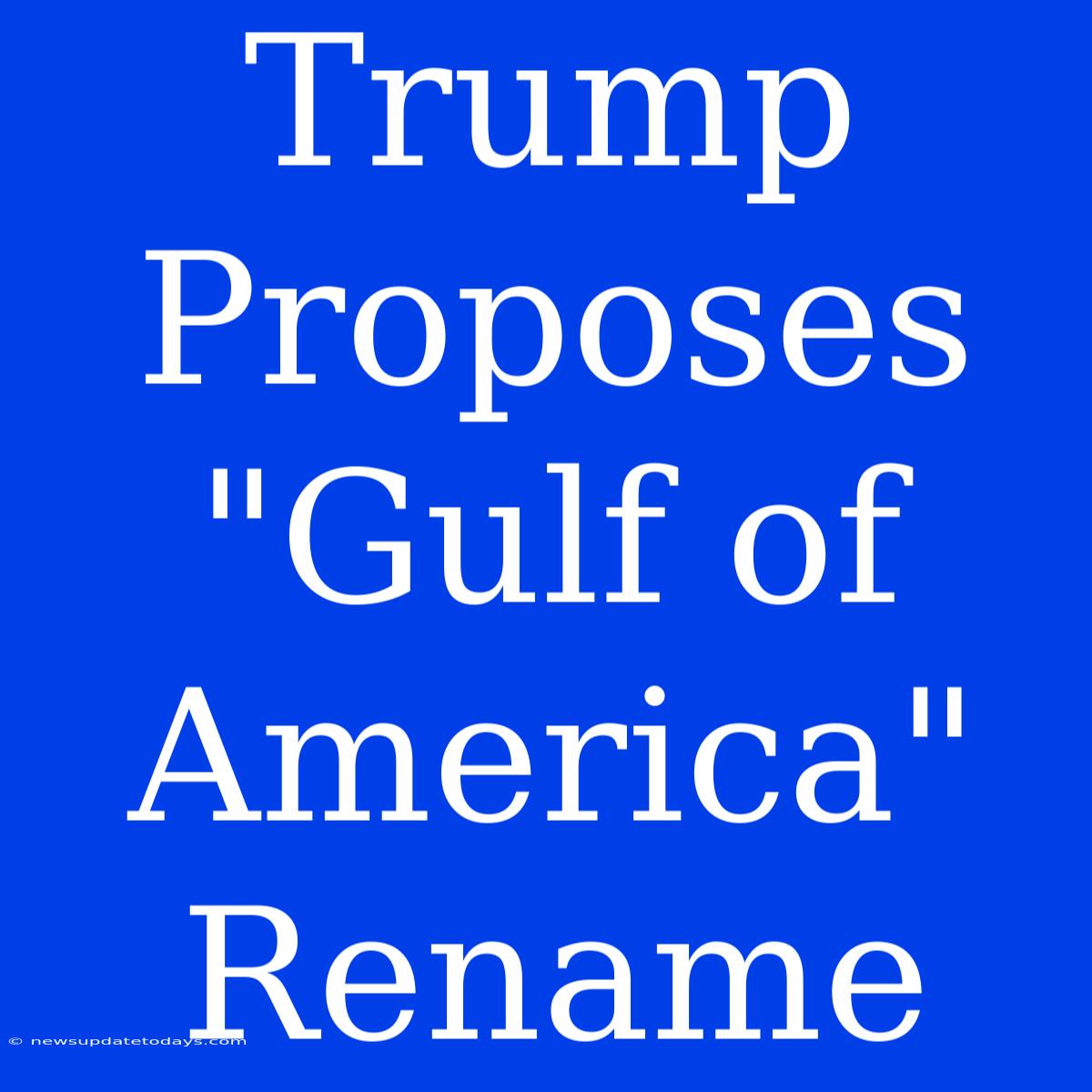Trump's "Gulf of America" Proposal: A Controversial Rename
Donald Trump's suggestion to rename the Gulf of Mexico the "Gulf of America" has sparked considerable debate. This seemingly simple proposal touches on complex issues of national identity, historical context, and international relations. This article delves into the controversy, exploring the arguments for and against the renaming, and examining its potential implications.
The Proposal and its Rationale
During his presidency, Donald Trump floated the idea of renaming the Gulf of Mexico, a significant body of water bordering the United States, Mexico, and Cuba. His reasoning, though never explicitly detailed, likely stemmed from a desire to emphasize American dominance and influence in the region. The term "Gulf of America" projects a sense of US ownership and control, aligning with Trump's broader "America First" agenda.
Arguments Against the Rename
The proposed renaming faces significant opposition for several reasons:
-
Historical Inaccuracy: The Gulf of Mexico has a rich history, predating US involvement. The name reflects its geographical location and long-standing recognition within the international community. A sudden renaming would disregard this history and established nomenclature.
-
International Relations: The Gulf borders several countries, not just the United States. A unilateral renaming by the US would likely be met with resistance from Mexico and Cuba, potentially straining diplomatic relations. International bodies may also object to this unilateral action.
-
Lack of Practical Benefit: Critics argue that changing the name offers no tangible benefit. It's a symbolic gesture with little practical impact on trade, navigation, or environmental protection efforts in the region. The resources required for such a renaming would be better allocated elsewhere.
-
Nationalism vs. Diplomacy: Opponents view the proposal as an expression of aggressive nationalism, potentially undermining collaborative efforts in the region. A more diplomatic approach that fosters international cooperation is seen as preferable.
Arguments For the Rename (limited and largely speculative)
While arguments against the renaming are widespread, some might argue that:
-
National Pride: Supporters might suggest that the rename reflects a renewed sense of American national pride and asserts its presence in the region.
-
Economic Implications: A rebranding, proponents could argue, might attract more American tourism and investment in Gulf Coast states. (This claim is highly speculative and lacks concrete evidence.)
Conclusion: A Symbolic Gesture with Far-Reaching Implications
Trump's proposal to rename the Gulf of Mexico highlights the complexities of national identity and international relations. While the practical consequences might be minimal, the symbolic impact is significant. The proposal sparks a conversation about the limits of unilateral action and the importance of respecting established international norms and historical contexts. Ultimately, the "Gulf of America" remains a controversial proposition, unlikely to gain widespread acceptance within the international community. The debate serves as a reminder of the sensitive nature of geographical naming conventions and the potential for even seemingly minor changes to ignite larger political and diplomatic discussions.

